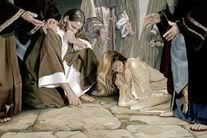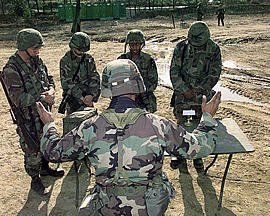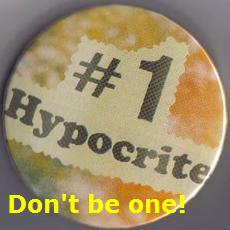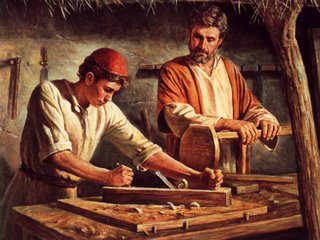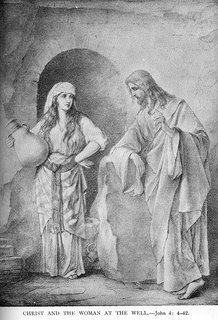
Today is a study on calling out other's sins... so many Christians insist that we are told to point out the errors of others...
'God tells us to do that!' 'God COMMANDS IT' 'WE MUST REBUKE THEM UNTIL THEY TURN AWAY FROM SIN!!!!!'
Yeah... um... not exactly.
John 4:4-9
Now he had to go through Samaria. So he came to a town in Samaria called Sychar, near the plot of ground Jacob had given to his son Joseph. Jacob's well was there, and Jesus, tired as he was from the journey, sat down by the well. It was about the sixth hour. When a Samaritan woman came to draw water, Jesus said to her, "Will you give me a drink?" (His disciples had gone into the town to buy food.) The Samaritan woman said to him, "You are a Jew and I am a Samaritan woman. How can you ask me for a drink?" (For Jews do not associate with Samaritans.)
Here we have Jesus speaking with someone the Jews would normally avoid. Not only that, the woman had gone to the well at the sixth hour... alone. Drawing water was a social time back in those days, and all the women and young children would usually gather together earlier in the day, as was custom. This woman was obviously being shunned by the other women in her village. Yet, Jesus, a Jew, was asking a Samaritan for a drink of water. It's interesting to note that during that period of time, Jews did not even share vessels or dishes with Samaritans. It was simply a social no-no!
John 4:10-12
Jesus answered her, "If you knew the gift of God and who it is that asks you for a drink, you would have asked him and he would have given you living water."
"Sir," the woman said, "you have nothing to draw with and the well is deep. Where can you get this living water? Are you greater than our father Jacob, who gave us the well and drank from it himself, as did also his sons and his flocks and herds?"
The Samaritan women is being a little snippy here, if not a little flirty... teasing Jesus, a Jew, about his lack of basket or bucket. She even chides him, asking if he is greater than Jacob of the OT.
John 4:13-14
Jesus answered, "Everyone who drinks this water will be thirsty again, but whoever drinks the water I give him will never thirst. Indeed, the water I give him will become in him a spring of water welling up to eternal life."
This is intriguing! Jesus is speaking of Salvation... eternal life through him. He is offering a sinner grace and it peaks her curiosity enough that she replies:
John 4:15
The woman said to him, "Sir, give me this water so that I won't get thirsty and have to keep coming here to draw water."
Now Jesus plays a little hard ball with her. (John 4:16) He told her, "Go, call your husband and come back."
And she responds (John 4:17a) "I have no husband," she replied.
John 4:17b-18
Jesus said to her, "You are right when you say you have no husband. The fact is, you have had five husbands, and the man you now have is not your husband. What you have just said is quite true."
Jesus has just pointed her sin. He did not point it out by citing passages from the Talmud that speak about marriage or prostitution. He didn't call her an outright sinner. He merely told her what she had done. The woman is amazed by this! He is a prophet?!
John 4:19-24
"Sir," the woman said, "I can see that you are a prophet. Our fathers worshiped on this mountain, but you Jews claim that the place where we must worship is in Jerusalem."
Jesus declared, "Believe me, woman, a time is coming when you will worship the Father neither on this mountain nor in Jerusalem. You Samaritans worship what you do not know; we worship what we do know, for salvation is from the Jews. Yet a time is coming and has now come when the true worshipers will worship the Father in spirit and truth, for they are the kind of worshipers the Father seeks. God is spirit, and his worshipers must worship in spirit and in truth."
Jesus does several things in that passage. The first thing he does is something he doesn't do. He doesn't harp on her sin. He placed conviction in her heart prior to his statement, and he allowed God to open her eyes. He does not continue to damn or judge her. Instead, he starts talking about the changes God has in store for humanity. He begins teaching her... not preaching at her... about the kind of worshipers that God is seeking. He speaks of spiritual matters. He knows that this woman has been shunned and damned by the people in the village. He knows how rough her life has been because of her sin. He doesn't want to cast her aside like they do. Instead, he wants her to know that God has plans in store. How beautiful is that message? Is it one we share with the sinners we meet in our own life?
John 4:25-26
The woman said, "I know that Messiah" (called Christ) "is coming. When he comes, he will explain everything to us."
Then Jesus declared, "I who speak to you am he."
His message of hope... a message of God's plans... opens her eyes to the Truth of who Jesus is. It is the perfect example of how a message of compassion and mercy can move a heart to see God. She is open to the message of Salvation... of eternal life. But...
John 4:27 Just then his disciples returned and were surprised to find him talking with a woman. But no one asked, "What do you want?" or "Why are you talking with her?"
Hello... what happens? A group of Christ's followers approach and see that he is talking with a disgusting little Samaritan slut. Tsk! TRAMP! They don't say anything, but their looks must have been obvious as the bible records them as 'surprised to find him talking with a woman.'
John 4:28-30 Then, leaving her water jar, the woman went back to the town and said to the people, "Come, see a man who told me everything I ever did. Could this be the Christ?" They came out of the town and made their way toward him.
Let's look at this one clearly. As I said, the woman was shunned. She was at the well alone, long after the normal period of the day when people gathered at the well. She was a social outcast because of her 'sleeping around'. Yet, there she was, crying out to everyone in her village to come meet the man who told her everything she ever did. Some villagers may have scoffed, and others may have wondered... but, the truth is, they left the village and made their way towards Christ, just because the woman ran back there all excited about Jesus.
John 3:31-39
Meanwhile his disciples urged him, "Rabbi, eat something."
But he said to them, "I have food to eat that you know nothing about."
Then his disciples said to each other, "Could someone have brought him food?"
"My food," said Jesus, "is to do the will of him who sent me and to finish his work. Do you not say, 'Four months more and then the harvest'? I tell you, open your eyes and look at the fields! They are ripe for harvest. Even now the reaper draws his wages, even now he harvests the crop for eternal life, so that the sower and the reaper may be glad together. Thus the saying 'One sows and another reaps' is true. I sent you to reap what you have not worked for. Others have done the hard work, and you have reaped the benefits of their labor."
Jesus is speaking very clearly, although at first glance it may seem like he's just talking about food. He is actually urging his followers to look at the people, not a field. The sower sets the seeds in place, and the reaper harvests the grown wheat. He tells his disciples that he has sent them to harvest what they didn't plant. How many times have we convicted a sinner without knowing their past? How many times has God sent someone to plant the seed, and we have attempted to claim the glory for the finished work? God has planted many seeds, and those seeds have grown and become ripe. Why is this lesson in this passage? Let's look at what happened next. And remember, Jesus planted a seed by speaking to the woman at the well...
John 4:39-42
Many of the Samaritans from that town believed in him because of the woman's testimony, "He told me everything I ever did." So when the Samaritans came to him, they urged him to stay with them, and he stayed two days. And because of his words many more became believers.
They said to the woman, "We no longer believe just because of what you said; now we have heard for ourselves, and we know that this man really is the Savior of the world."
The woman brought her village back to Christ, and because of that, more seeds were planted. She didn't run back to her village, break off her relationship immediately with her man, atone and cleanse herself. Nope. She was too excited! Instead, she ran back and said 'I am a sinner, and God has offered me eternal life!' The village came before Christ, listened to him, and urged him to stay with them for 2 days. They at first believed just because of what the woman said... she planted a seed!... but then they no longer believed it just because she said it, because they grew in their own spiritual walk through Jesus himself.
What does this story teach us?
First of all, it teaches us that we are not Christ... but we should try to reflect him. He gives us the formula for planting a seed. He does not launch into an instant 'DAMN YOU SINNER', but takes the time to speak with the woman as a human being. He then calmly points out her sin, but doesn't dwell on it. Instead, he talks to her about God.
Second, the woman runs to her village to lead people to Christ. She knows she has done sin, and knows she is shunned, yet Jesus mercy and kindness is so overwhelming that she puts aside all her fears and talks to the very people who shunned her so cruelly!
Third, Christ teaches us that we don't own the whole 'salvation' market. God sends many people to plant seeds. Just because we think someone can be harvested several months... or years... from now doesn't mean that we can claim glory for all the hard work. Further, we can't get so caught up in our own desire to 'convert someone' that we are blind to the fact that God may have planted a seed in that person, and made them a sower. What if the Disciples had condemned the woman for being a Samaritan? What if they had damned her for being a 'sinner' or an outcast? Do you think she would have run to her village with a heart on fire for the Lord? Do you think she would have planted seeds on her own? Had they damned her, she would have taken her water jar and left, and kept her mouth quiet, because her heart was hardened towards God. ALWAYS remember this lesson when you speak to people you assume are unforgiven sinners! The woman hadn't had time to change her ways, and God used her to sow seeds. Humbling, isn't it?
The final lesson is that she, a sinner, lead people to Christ. At first, they believed her only because of her passion. Once they came to know Jesus, they believed in him because of their own time with him. This is how hearts are turned to God.
We can not be Christ. We can not save anyone. We can gently correct, but before we correct, we have to take the time to talk to that person with respect and a little kindness. Once they express interest, we can gently tell them about an error... if God so opens our eyes to it... but we should never dwell on their sins. Don't you know that the world has already cast them aside because of sin? Don't you understand that your job is not to kill the soul, but to either plant the seed or help it grow? Everyone shuns... but hearts are moved when a message of promise is given. And so, we must be like the woman at the well. We must go out and share about Christ, speaking from our own personal experience. We can lead others to Christ when they see the transformation he does in us.
Second Timothy 3:16-17 states:
All Scripture is God-breathed and is useful for teaching, rebuking, correcting and training in righteousness, so that the man of God may be thoroughly equipped for every good work.
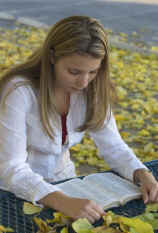 Please note... those two verses must always be read as one. Scripture is used to reach, rebuke, correct and train in righteousness... God's righteousness... so that you can have a righteous heart when you go out to spread the Gospels. Scripture is meant as a personal teaching aide to keep us on the correct path. Jesus did not use Scripture to teach the woman at the well. He spoke to her freely, sharing mercy and the promise of Salvation.
Please note... those two verses must always be read as one. Scripture is used to reach, rebuke, correct and train in righteousness... God's righteousness... so that you can have a righteous heart when you go out to spread the Gospels. Scripture is meant as a personal teaching aide to keep us on the correct path. Jesus did not use Scripture to teach the woman at the well. He spoke to her freely, sharing mercy and the promise of Salvation.A person is not a 'man of God' until that person has the seed planted. They can spend years in their newfound Christian walk learning about God's plans and will. As they grow in Christ, they begin to learn the lessons from Scripture... lessons meant to help them become righteous (not self-righteous). Ripping scriptures out of the bible and using them in an attempt to teach, rebuke, correct or train someone... before a seed is planted in that person... is just like a harvester coming along and trying to harvest an empty field. As you wave the scythe about, you scare off the sowers and the ground trampled beneath your feet becomes too hard for a seed to be sown. You do nothing but condemn a field to remain fallow.

 Posted by
Posted by
 Labels:
Labels:


